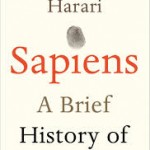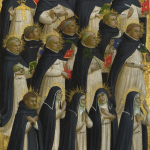You can listen to “Fights in Good Faith,” my weekly radio program, streaming today at 5pm ET and tomorrow (Sun) at 1pm The episode is now available to download and stream.
Every week, I put up a “Radio Readings” post, so you can track down the books, articles, and (this week) adorable experiments that I cite on the show. So, without further ado, here’s what I’m talking about this week.
“Deny the Cat and Refuse Thy Nature…”
- From G.K. Chesterton’s Orthodoxy:
Modern masters of science are much impressed with the need of beginning all inquiry with a fact. The ancient masters of religion were quite equally impressed with that necessity. They began with the fact of sin—a fact as practical as potatoes. Whether or no man could be washed in miraculous waters, there was no doubt at any rate that he wanted washing. But certain religious leaders in London, not mere materialists, have begun in our day not to deny the highly disputable water, but to deny the indisputable dirt. Certain new theologians dispute original sin, which is the only part of Christian theology which can really be proved. Some followers of the Reverend R. J. Campbell, in their almost too fastidious spirituality, admit divine sinlessness, which they cannot see even in their dreams. But they essentially deny human sin, which they can see in the street. The strongest saints and the strongest sceptics alike took positive evil as the starting-point of their argument. If it be true (as it certainly is) that a man can feel exquisite happiness in skinning a cat, then the religious philosopher can only draw one of two deductions. He must either deny the existence of God, as all atheists do; or he must deny the present union between God and man, as all Christians do. The new theologians seem to think it a highly rationalistic solution to deny the cat.
- From Francis Spufford’s Unapologetic: Why, Despite Everything, Christianity Can Still Make Surprising Emotional Sense:
Everybody knows, then, that “sin” basically means “indulgence” or “enjoyable naughtiness.” If you were worried, you’d use a different word or phrase. You’d talk about “eating disorders” or “addictions”; you’d go to another vocabulary cloud altogether. The result is that when you come across someone trying to use “sin” in its old sense, you may know perfectly well in theory that they must mean something which isn’t principally chocolately, and yet the modern mood music of the word is so insistent that it’s hard to hear anything except an invocation of a trivially naughty pleasure. And if someone talks, gravely and earnestly, about what a sorrowful burden one of those is, the result will be to make that speaker seem swiftly much, much more alarming than the thing they’re getting worked up about. For which would seem to you to be the bigger problem, the bigger threat to human happiness: a plate of pralines, or a killjoy religious fanatic denouncing them?
- Romans 7:15 “I do not understand what I do. For what I want to do I do not do, but what I hate I do” is akrasia in secular terms
Lewis’s Map of Our Divided Self
- From C.S. Lewis’s The Screwtape Letters [written as instructions from a senior devil to a junior tempter]:
You will find that anything or nothing is sufficient to attract his wandering attention. You no longer need a good book, which he really likes, to keep him from his prayers or his work or his sleep; a column of advertisements in yesterday’s paper will do. You can make him waste his time not only in conversation he enjoys with people whom he likes, but also in conversations with those he cares nothing about, on subjects that bore him. You can make him do nothing at all for long periods. You can keep him up late at night, not roistering, but staring at a dead fire in a cold room. All the healthy and outgoing activities which we want him to avoid can be inhibited and nothing given in return, so that at last he may say…’I now see that I spent most my life in doing neither what I ought nor what I liked.’
- Acedia — a listlessness or torpor that is the direct opposite of spiritual joy (distinct from sloth)
Haggling for Access to Heaven
- Some framings of heaven/salvation make it sound like a test of our capacity to delay gratification–a scaled up version of the Marshmallow Test
https://www.youtube.com/watch?v=x3S0xS2hdi4 - Or people talk about salvation as a big swap, where we give God something He wants in exchange for what we want, reaping gains from trade
The Summum Bonum and Pascal’s Mugging
- Pascal’s Mugging – When high expected payoffs make it hard to reason
- This comes up in discussions about animal suffering, when activists claim animals’ capacity to suffer outweighs human suffer by so much that our own troubles are a rounding error.













